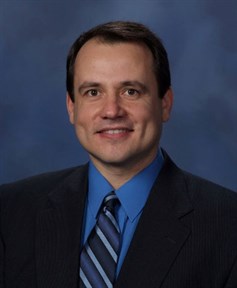Apr 6 2013
Dr. Radu Stoleru, assistant professor in the Department of Computer Science and Engineering at Texas A&M University, was named a National Science Foundation (NSF) CAREER Award recipient for his continuing research into the newly emerging field of flow-based cyber-physical system.
 Dr. Radu Stoleru
Dr. Radu Stoleru
The NSF awards the prestigious CAREER grants to outstanding junior faculty members to help them advance their research and teaching activities. Stoleru's project, "Foundations for Flow-based Cyber-Physical Systems," will continue through March 2018.
"The goal of this project is to advance our fundamental understanding, through a robust mathematical framework, of emerging field of flow-based cyber-physical system," Stoleru said. "The project develops new architectures, models, metrics, algorithms and protocols for optimal sensing, communication and actuation in Fflow-based cyber-physical system deployed on-demand or proactively."
Flow-based Cyber Physical Systems consist of mobile sensor nodes and static nodes, aware of their location. For stringent requirements (e.g., form factor, cost, energy budget) nodes may or may not possess node-to-node communication capabilities. Due to the lack of localization infrastructure, mobile sensor nodes infer their location only by proximity to static nodes. Sensor nodes are moved by the flow in the network, detect events of interest and proximity to static nodes, communicate and actuate. This research will enable, for example, water distribution monitoring systems to accurately and timely detect events of interest in the infrastructure and to react to these events. It may enable doctors to detect diseases and deliver medication with microscopic precision.
The broader impacts of his research may "foster new research directions in CPS applications. This project will also offer research opportunities to undergraduate students, underrepresented groups, and high school students participating in the Texas Science Olympiad and National Science Olympiad," Stoleru said.
Stoleru heads the Laboratory for Embedded & Networked Sensor Systems in the Department of Computer Science and Engineering. He received his Ph.D. in computer science from the University of Virginia in 2007. While at the University of Virginia, Stoleru received the Outstanding Graduate Student Research Award for 2007 from the Department of Computer Science. His research interests are in deeply embedded wireless sensor systems, distributed systems, embedded computing, and computer networking. He has been author or co-author of more than 60 conference and journal papers with more than 2,200 citations. Stoleru currently serves as an editorial board member for three international journals and has served as technical program committee member on numerous international conferences.
The NSF established the CAREER program to support junior faculty within the context of their overall career development, combining in a single program the support of research and education of the highest quality in the broadest sense. Through this program, the NSF emphasizes the importance of the early development of academic careers dedicated to simulating the discovery process in which the excitement of research is enhanced by inspired teaching and enthusiastic learning. For more on the NSF and the CAREER program, visit http://www.nsf.gov.